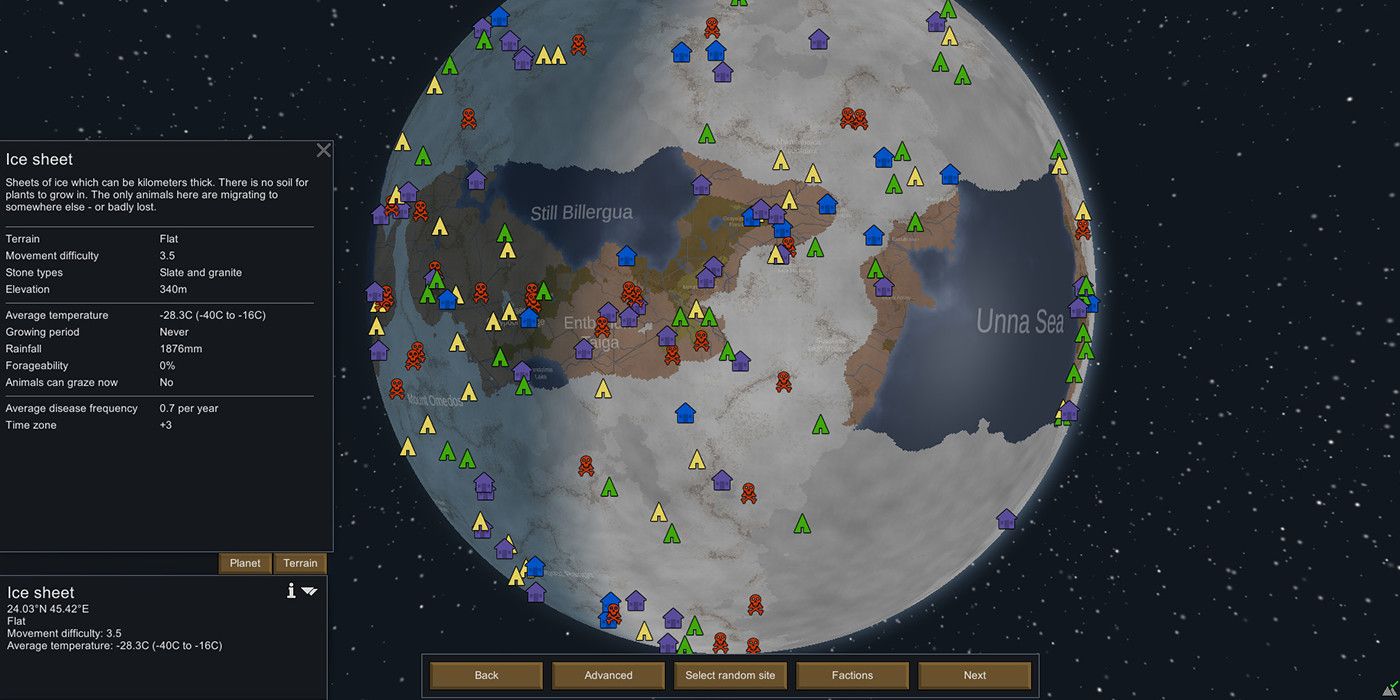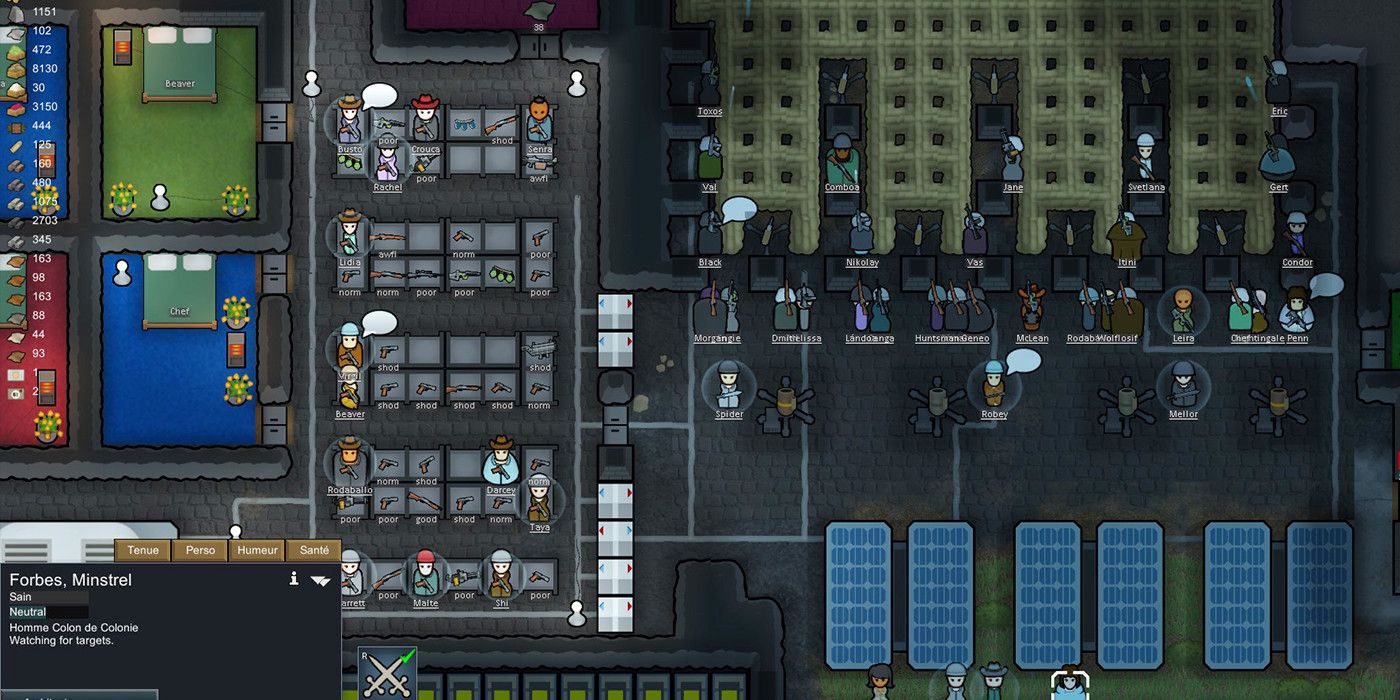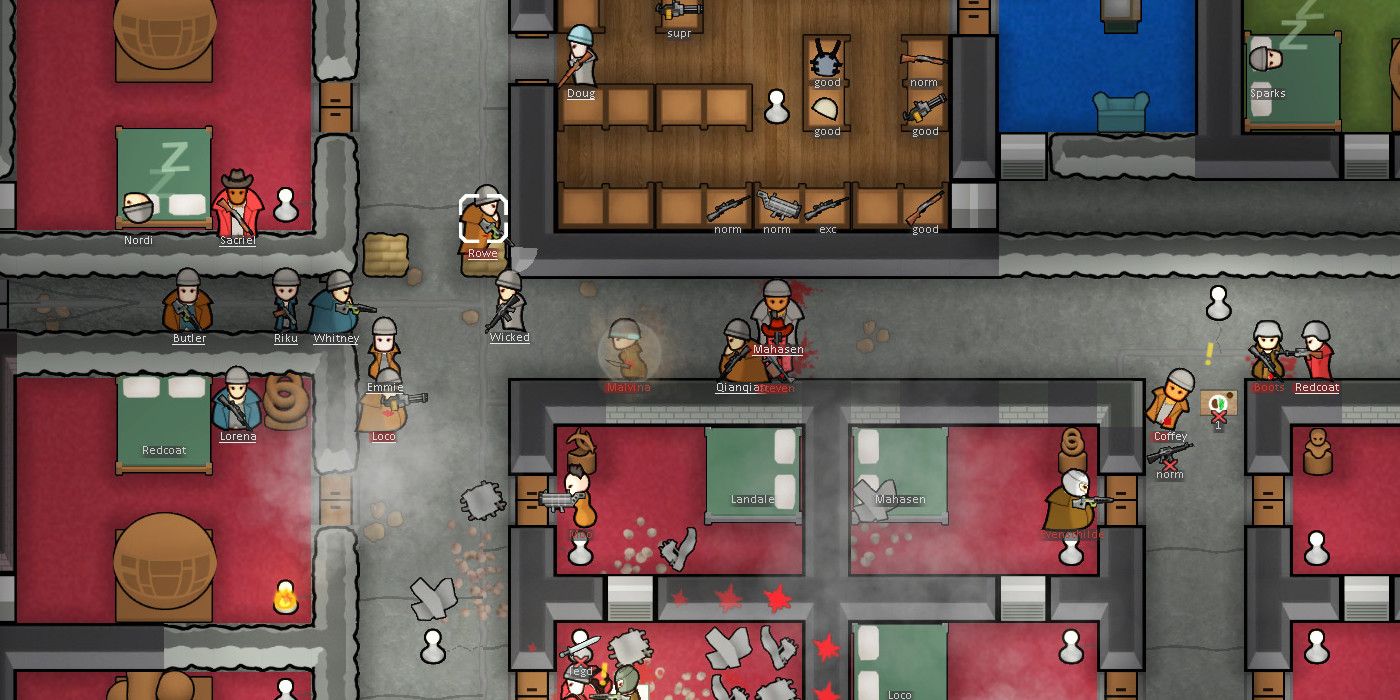Indie-game Rimworld is a strategy-survival game where crash-landed colonists must survive on a distant alien planet. Doing so requires utilizing the colonists' skills to survive in a harsh environment, all whilst witnessing a dynamic story managed by the game's AI storyteller. The Steam Store page for Rimworld emphasizes its nature as a storytelling tool rather than a proper management game.
Rimworld can be an incredibly difficult survival game for newcomers to get the hang of. There are a lot of moving parts, and the concept of not having direct control over the colonists (referred to as pawns in-game) doesn't help. However, learning the game and understanding mistakes is part of what makes each game of Rimworld so much fun. To help ease new players into the story-generator, here are a few tips for new Rimworld players.
Choosing the Pawns
One of the first things players will do is pick which pawns they'll start a new game of Rimworld with. The game presents a small selection of options, though players can always reroll these options to try and get better options. There's a lot of information presented about each pawn, but there are three main areas: skills, traits and injuries. These can often be what make or break a Rimworld game.
Skills are ranked with a numerical value, with high numbers being good and low numbers being bad. If a skill doesn't have a number and is grayed out, that means the pawn is incapable of doing anything relating to that skill. If a skill has a fire icon nearby, that means the pawn is interested in it and can level that skill up faster. New players want to avoid starting with pawns incapable of doing firefighting, construction, or plantcutting, as these are vital to early-game survival.
Players shouldn't worry too much about getting incredibly high stat levels from the start, as anywhere from five to eight is usually good enough to start. What players should pay attention to is having their three pawns cover a decent amount of skills, with cooking, construction, animal handling and shooting being the most important. Firefighting and dumb labor are skills that at least one or two pawns should be capable of doing since putting out fires and hauling are incredibly important.
Injuries don't usually force a reset for a character, though new players should know that a character with any kind of addiction will bring mood debuffs that could lead to a mental break. Traits can be both positive and negative, with some greatly changing a pawn's gameplay. Much like injuries, just be sure to pay attention to what traits a pawn has.
Survive the Winter
A great first goal for new players is to survive past the first in-game winter, which tends to be a common theme in multiple survival games. With the default settings, players should start in the spring. The first thing players should do is build a single room for pawns to sleep, as the mood boost from individual rooms isn't worth the resources saved from a communal one. From there, getting electricity up and running is crucial. Woodfire generators should only be used if wind turbines and/or solar panels aren't viable.
Getting a walk-in cooler to store food is crucial since going out into the cold to hunt is usually a death sentence. Try to prioritize having two different sections in the cooler rather than making it massive, as separating raw food and finished meals will prevent pawns from getting food poising and help players stay organized. Players can actually set a max limit for the meals that will be produced at a cooking station, which can help prevent pawns making way more meals than what's needed.
The last thing that's necessary for players to survive the winter season is warmth. Warmth can be achieved through two main mediums: heaters and warm clothes. Heaters use quite a bit of electricity, so getting a few solar panels and/or wind turbines up is crucial. Warm clothes can be crafted at a tailoring station, and players shouldn't have at least one or two extra pairs in storage, plus however many pawns need to clothed.
Losing is Okay
One of the biggest bits of advice for any new Rimworld player is that players are meant to lose the game. A colony getting wiped out by a herd of manhunting beavers or being gunned down by giant mechanoid insects swarming from the walls shouldn't be taken as a failure, just the end of a story. Learning from mistakes is crucial to enjoying Rimworld. Even though the game has a fair amount of random elements, there's usually a way that a player could have prepared ahead of time.
Of course, there could very well be a scenario that the game puts a player in that couldn't have been foreseen. A player could spend the entire fall season stockpiling on food and building parkas to keep their colonists warm, which should normally be a surefire way to survive the winter. Then, hypothetically, the game could throw a combination of a heatwave and a toxic cloud that manages to spoil any stockpiled food and kill nearby flora and fauna. What was once a totally survivable Winter becomes a death sentence for the colonists.
This kind of randomly generated situation is part of Rimworld's charm. At the end of a playthrough, the point is to have a great story to share with others who've played. Whether or not there was any way to learn from a mistake, new players should understand that failure is part of the game.




